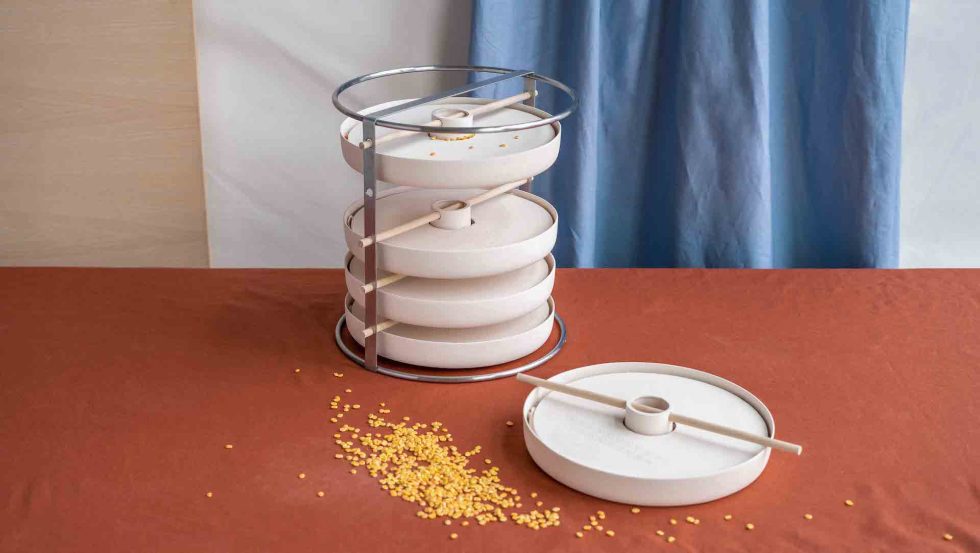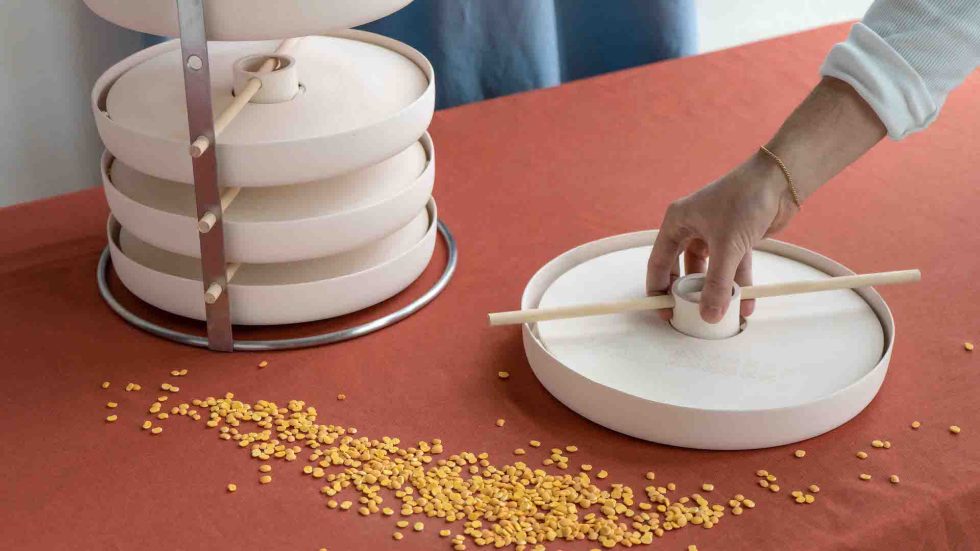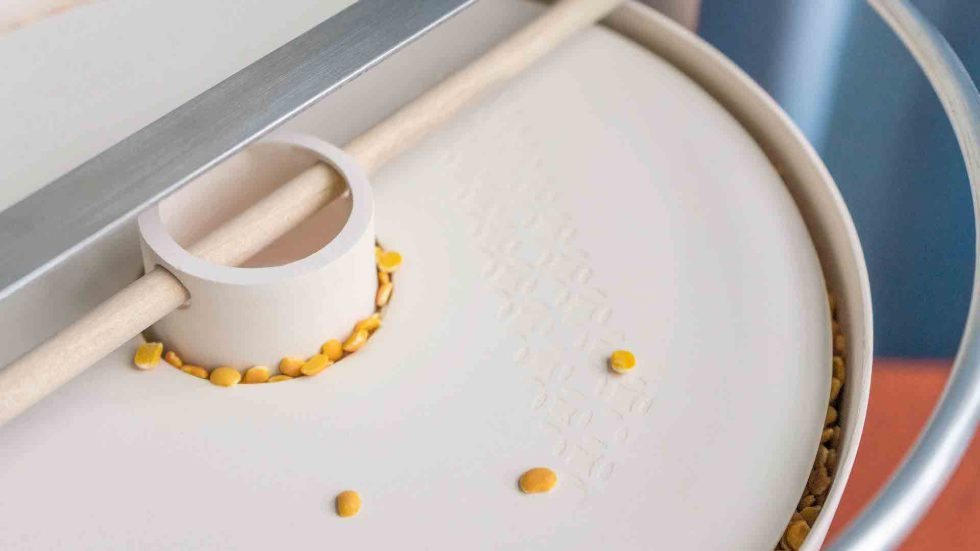SUBUR
Tempeh, in Indonesian tradition, combines soybeans with the culture of the fungus Rhizopus Oligosporus and is then packed in banana leaves to ferment at room temperature over a couple of days. However, as it gains traction in the West, due to its high nutritional value at a low cost, difficulty arises in the production; the banana leaf is not locally available and the colder climate demands for added heat.
SUBUR (Javanese: Flourishing) provides productibility in a Nordic context. The porous earthware allows the mass to breathe, similarly to the banana leaves. Further, with considerations in geometry, the vessels retain and evenly distribute the natural heat from the fermentation process, making the process not only sustainable with cyclic reusable containers, but also self-sustaining in production.
The product is adjusted to conform with the scale of collaborator Kuno Tempe, a small-scale producer using locally sourced lupin beans at 5 to 10 kg per week.


